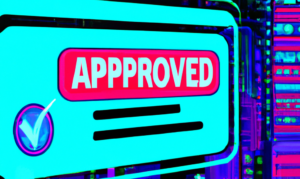What Are First Responder And Educator Mortgages?
The Homes for Every Local Protector, Educator, and Responder Act of 2021, also known as the HELPER Act, is a significant piece of legislation aimed at supporting homeownership among first responders and educators in the United States. To begin with, this act amends the National Housing Act to establish a mortgage insurance program. Designed specifically for these first responder and educator mortgages, consequently, it becomes easier for them to purchase, construct, or repair their homes. In this article, we will discuss the key provisions of the HELPER Act, its impact on the real estate market, and, furthermore, explore the potential future of this important initiative.
Background and Context
First responders and educators play a critical role in our society, as they keep us safe, educated, and informed. Despite their importance, these professionals often encounter significant barriers to homeownership, such as high housing costs and limited financing options. Although existing homeownership assistance programs are available, they may not adequately address their unique needs. To bridge this gap and offer targeted support for these deserving individuals, the HELPER Act was introduced in May 2021, paving the way for more accessible homeownership opportunities.
Key Features of the HELPER Act
The HELPER Act proposes to establish a mortgage insurance program specifically designed for first responders and educators. Let’s explore its key features:
- Eligibility Criteria:
- To qualify for a mortgage insured under the HELPER Act, the mortgagor must meet specific employment, service, and intent requirements. The applicant must be employed full-time as a first responder or educator. They need four consecutive years of service and intend to continue working for at least one more year.
- Mortgage Terms and Conditions:
- The HELPER Act allows for 100% financing with no down payment requirement. The mortgage can be used to purchase, construct, or repair a single-family residence, including condominiums and manufactured homes permanently affixed to a lot. The mortgage must be originated by an approved mortgagee and may bear adjustable interest rates.
- Mortgage Insurance Premium:
- The legislation mandates an upfront insurance premium equal to 3.6% of the original insured principal obligation. The Secretary of Housing and Urban Development (HUD) has the authority to adjust this percentage based on market conditions and the performance of insured mortgages. Notably, there will be no monthly insurance premiums.
Benefits of the HELPER Act
The HELPER Act offers numerous benefits to first responders and educators, including:
- Promoting Homeownership:
- By providing 100% financing and no down payment requirement, the HELPER Act makes it easier for eligible professionals to achieve homeownership.
- Strengthening Communities:
- By supporting first responders and educators in purchasing homes, the HELPER Act can help build stronger, more resilient communities.
- Reducing Financial Burdens:
- The HELPER Act can alleviate some of the financial challenges faced by these professionals in securing a mortgage, especially in high-cost areas.
Potential Challenges and Criticisms of First Responder and Educator Mortgages
There are concerns about the potential fiscal impact of the program on the federal budget. Critics claim the program could hike the national debt, and the government should not provide specific financing for particular professions. Moreover, some fear the Act may unintentionally escalate housing expenses for first responders and educators due to intensified demand and competition for homes in specific regions. It will be important to monitor the implementation of the program and address any unintended consequences that may arise.
- Fiscal Impact:
- Critics argue that the program may put additional strain on the Mutual Mortgage Insurance Fund, affecting its long-term sustainability.
- Unintended Consequences:
- There is a possibility that the legislation may inadvertently contribute to housing price inflation or distort the housing market in some areas.
- Program Expiration:
- The HELPER Act’s authority to insure new mortgages will expire in five years, raising concerns about the program’s longevity and future impact.
Comparing the HELPER Act to Other Homeownership Assistance Programs
The HELPER Act can be compared to other homeownership assistance programs, such as the VA Home Loan program, USDA Home Loan program, and the Federal Home Loan Bank’s Affordable Housing Program. Although each program has unique features and criteria, the HELPER Act specifically addresses the needs of first responders and educators, setting it apart from other initiatives. To illustrate, while the VA and USDA programs cater to veterans and rural homebuyers respectively, the HELPER Act focuses on providing assistance to those who serve our communities daily.
- VA Home Loan Program:
- The Department of Veterans Affairs offers the VA Home Loan program for eligible veterans with new increased loan limits, active-duty service members, and certain surviving spouses. This program provides 100% financing and does not require mortgage insurance. Limited to the military community and does not cater to first responders and educators who are not veterans.
- USDA Home Loan Program:
- The United States Department of Agriculture (USDA) offers the USDA Home Loan program for eligible rural and suburban homebuyers. This program also provides 100% financing with no down payment requirement and low mortgage insurance premiums. Geographically restricted and may not be suitable for first responders and educators working in urban areas.
- Federal Home Loan Bank’s Affordable Housing Program (AHP):
- The AHP provides grants and subsidized loans to assist low- to moderate-income households in purchasing, constructing, or rehabilitating homes. However, the AHP does not specifically target first responders and educators and may not offer the same level of benefits as the HELPER Act.
Conclusion
The HELPER Act of 2021 aims to promote homeownership among first responders and educators through specialized mortgages. It offers 100% financing, no down payment requirement, and reduced insurance premiums. This legislation provides targeted support to these professionals, strengthening communities.
The Act faces potential challenges, including fiscal impact and unintended consequences. The HELPER Act is vital for first responders and educators in the housing market. Monitoring its implementation and assessing its impact will be crucial. This will ensure the Act meets its intended goals and minimizes negative effects.
To stay informed on the latest developments on the HELPER Act and other housing policies, follow this blog. If you found this article helpful, don’t hesitate to share it with others who might benefit from this information.






